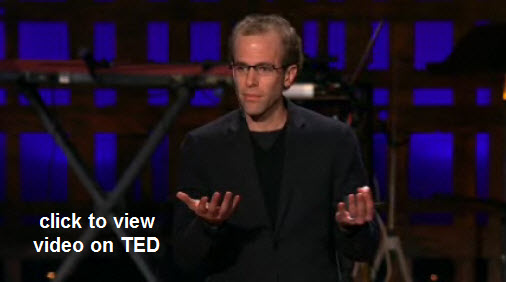There is a view of farmers that I believe seriously undervalues their value, in the bigger scheme of things. I’ve thought this for a long time. It goes back to my early years living on my late Dad’s farm. He grew crops and raised pigs for market. Yet; he was also a German Jewish intellectual, an immigrant to Canada, via Kenya and UK, part of the WWII Diaspora, and brought his world view to our small farm, and local community, in Southern Ontario.
A recent TED presentation caught my attention. It, too, touches on farming, and tells the story of a fish farm in southern Spain, and a farmer named Miguel; a farm where relationships between species, land, and location are explored and nurtured, in ways I think might have made my Dad smile.
The story of Veta la Palama
Veta la Palama is a fish farm in southern Spain, located in an island in an estuary 16 kilometres from the Atlantic Ocean. Tides sweep in estuary water, which a pumping station distributes throughout the farm’s 45 ponds. Because it comes directly from the ocean, that water teems with microalgae and tiny translucent shrimp, which provide natural food for the fish that Veta la Palma raises.
Veta la Palma produces 1,200 tonnes of sea bass, bream, red mullet and shrimp each year. The land also acts as the largest private bird sanctuary in Europe; including flamingos that travel in the morning to feast on shrimp at the farm, and return the same day, to their brooding ground 150 miles away! 20% of fish and fish eggs are lost to birds each year, and this is good, says the farm’s biologist Miguel Medialdea. We farm extensively, not intensively. This is an ecological network. The flamingos eat the shrimp. The shrimp eat the phytoplankton. So the pinker the (flamingo) belly, the better the system.
Veta la Palma provides an alternative to the more common agribusiness model; i.e., high on capital, chemistry, machines, and questionable-tasting food!
Dan Barber is a New York chef, scholar, conservation advocate, and influential voice on agricultural policy. In this engaging TED talk last month, titled How I fell in love with a fish, Barber is clear about his preferred way forward
Can’t see the video? Click here.
What’s to like about Veta la Palma
Barber’s optimism is a statement for farmers (and their farms):
- that aren’t worlds unto themselves; rather they are part of the larger life network
- that restore instead of deplete; letting nature be nature e.g., impurities in the water are naturally filtered out
- that farm extensively instead of just intensively; diversity is healthy
- that measure their success by the success of predators; all things are connected!
- that are not just producers, but experts in relationships; systems thinkers
- that produce good tasting food (where do I sign up?)
- that flow with an ecological model; one that relies on two billion years of on-the-job experience
- that show us another way positive way to collaborate, to work together, and move forward
Look to the farmer as a barometer of healthy community. I do, in my community.
Some questions
Veta la Palma is owned by a major Spanish food conglomerate Hisaparroz. Like many conglomerates, there are aspects of the empire that don’t fit so nicely into the sustainability model e.g., genetic engineering. How to reconcile this paradox?
Where is sustainability positioned in our list of priorities? (thinking of my posts about my local fair trade coffee distributor and my experience with fish farmers in the Philippines)
Do foreclosures in the American outer suburbs represent farming opportunities?
How does extensive farming integrate with intensive urban farming?
How can we create conditions that enable every community to feed itself? What about in my own community?
Your turn… What questions do you have? (answers are ok too!)
If you enjoyed this post, please consider leaving a comment or subscribing to my blog. Thanks, Ben.


I too watched the TED presentation cited. I have tried to find out more about this farm but have only run into more references to this presentation. Unfortunately while the presentation was fascinating it was a little thin on some details. For instance what % of the food needs of the area/country is this farm meeting? How replicatable is this system or is it unique? A lot of cost benefit questions remained unanswered and this makes me wonder if there are not elements very much like the “sustainable protein” Dan himself questioned that would reveal equally disappointing answers.
Junipurr, Good point about the presentation being thin on details. It’s almost a “teaser”, for those of us who are interested, to dig into it more. I’m going to check in with some local food/sustainability folks where I live and see if they can shed any more light, and will post anything of interest that I find out. Appreciate you sharing your thoughts.
The Web site for Veta la Palma is http://www.vetalapalma.es/ .
Thanks for this link Terry.